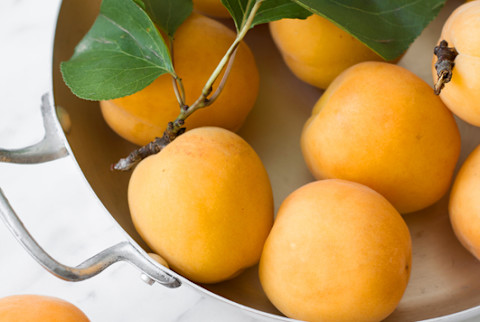The Surprising Foods That Are Making Your Seasonal Allergies Worse

Many people who suffer from seasonal allergies might be surprised to discover that they're more sensitive to certain foods during allergy season. This phenomenon is called oral allergy syndrome (OAS) and is the most common food allergy observed in adults that suffer from seasonal allergies. OAS is characterized by an itchiness in the mouth and throat after eating certain pollen-interactive foods and is most common in people who suffer from seasonal tree pollen allergy, notably to "birch pollen." This will generally only occur when you eat the raw version of the food, whether it be fruit, vegetable or spice.
OAS is triggered by certain allergens present in these foods—often on the skin or its peel—that are similar to the proteins in pollen, such as tree, grass, ragweed, and weeds. It's also worth noting that non-plant-based plant foods—e.g., egg, milk, shellfish—are not a factor in OAS—experiencing allergic reactions to these foods more likely indicates a specific food allergy that should be addressed by an allergy specialist. And while children may experience OAS, it's more common in adults largely because it requires you first to have developed a pollen allergy.
In most OAS sufferers, the reaction is mild and goes away as soon as the food is digested. But it can still be uncomfortable, especially if you don't know what's triggering the symptoms. Here are some foods that trigger OAS symptoms:
Fruit

If you have seasonal allergies, watch out if you experience OAS symptoms when eating pitted fruit such as apples, peaches, nectarines, cherries, pears, and apricots. You might also want to stay away from melons like cantaloupe, watermelon, and honeydew, as well as tropical fruits like banana and kiwi. These are among the most common fruits that are responsible for this syndrome.
Vegetables

Fruits aren't the only foods that can aggravate allergy symptoms. Vegetables can be culprits, too; those known to trigger OAS include carrot, celery, zucchini, bell pepper, cucumber, onion, white potato, and Swiss chard.
Spices and seeds

Before you reach for the spice rack, you should consider how certain spices, herbs, and seeds can react with your seasonal allergies. Parsley, coriander, anise, fennel, sunflower, caraway, mustard, cumin, and dill can all induce unpleasant itchiness of the mouth and throat when pollen counts are high.
Legumes and nuts

Peanuts and soybeans are two major triggers of OAS. If you're experiencing a reaction to peanuts, however, it would be prudent to consult with an allergist for proper evaluation, testing, and management to ensure that your reaction isn't indicative of a more deep-seeded food allergy.
The solution?
If you're finding it hard to eat a lot of your favorite foods in the springtime, don't despair: You don't have to go completely without your fruits, veggies, spices, and nuts during allergy season. In many cases, cooking, baking, or microwaving the OAS-triggering foods can help to break down the food proteins that are responsible for the mouth and throat itchiness. Additionally, peeling the skin of your fruits (like apples and pears) can help reduce exposure to these proteins and decrease allergic reactions.

